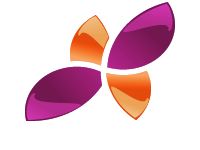Travel tips for patients in treatment
Sometimes we want to take a trip in the middle of chemotherapy. Sometimes out of choice, sometimes out of necessity. You should always consult with your doctor before going on any trip in the middle of treatment. Chances are your immune system is suppressed significantly and it may not be advisable to take any trips.
If you do decide to go away from home, here are some tips to make your journey safe and event free.
Give your traveling companion a 1-sheet summary of your recent medical history. If there is a problem, the most likely thing is some small infection. Who ever treats you would want to know your recent history to try to figure out what kind of antibiotic to take.
Consider bringing the following information:
- Paper with list of hospitals, including major cancer clinics, along the way.
- Paper with recent medical history (name, birth date, diagnosis, current treatment protocol, last treatment date and medications given, any drugs he is on, any allergies, etc)
- Name, phone number of your haematologist/oncologist
- A backup medical insurance card or photocopies of insurance card
- Traveling abroad? Consider getting an appointment with an oncologist in the country to which you are going
- A list of motels along the way would be a good idea. You may want to take along one of those Automobile association travel guides?
- Good maps are always a good idea. Paper or online, just make sure you know where you are going.
- A navigation system is useful. It has motels, restaurants, gas stations, etc., so you can punch in what you are looking for and it find it quickly.
- Dehydration is something to be avoided. Bring along a cooler for cold (non-alcoholic) drinks? Pack a lot of Purified drinking water, take a lot of rest stops to avoid fatigue
- Fruit? Snacks?
- If traveling by air, you may need a face mask to protect yourself from airborne germs
- Bring a thermometer and use it often (twice a day would be good). The last thing you want is to leave an infection until it is too late. Head for a clinic or hospital if you hit 100.5 (38C)
- Check with your oncologist for a prescription for antibiotics in case you pick up something from the motels or hotels you may stay in. It is easier to have something along with you in lieu of having to see a doctor in another city or town
- As a precaution against picking up a nasty infection, bring your own pillow or pillows for the hotel or to nap in the car if and when you tire of driving during the day
Traveling behaviour:
- Avoid the usual open salad bars and watch where you eat on the way
- Try to pick up the signs of incipient fatigue *before* the fatigue really grabs you. It will make the trip easier. That way you can find a place to stop and to rest
- Stop every 2-2½ hours, rest, hydrate, go to the bathroom and walk about a bit. This can reduce the risk of both kidney stones and blood clots.
Most of all HAVE FUN!

